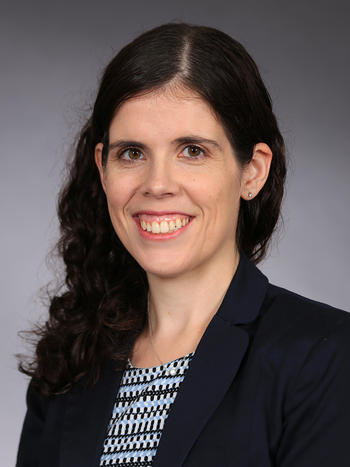
Changing the Future of STEM
Dr. Courtney Alexander
Cornell article by Mary Zajac
As an assistant professor at the University of North Carolina Pembroke, Dr. Courtney Carroll Alexander (Ph.D. ’17) is teaching students whom she believes will change the future of science.
“The problems we’re facing are more complex than ever before, and having increased diversity increases the voices and the number of ideas at the table,” explains Dr. Alexander, a cellular neuroscientist in UNC Pembroke’s Department of Biology. “I really want to help grow that pipeline of students who may have never considered themselves as scientists to get into STEM fields.”
Dr. Alexander came to UNC Pembroke after completing a postdoctoral fellowship at University of Texas Health Science Center- San Antonio, which was funded by an Institutional Research and Academic Career Development Award — a program sponsored by the NIH that requires recipients to teach while conducting research.

Portrait of Dr. Courtney Alexander by Nigel Buchanan
“If you’re working by yourself on a bench, doing experiment after experiment and not seeing any results, it’s very discouraging,” says Dr. Alexander, whose research focuses on age-related neurodegenerative disorders. “I go into my classroom, and I get to teach a subject and watch students learn new information, connect dots and put a thesis together. All that to me is very exciting and empowering.”
UNC Pembroke’s unique place as a diverse Native non-tribal serving institution and as one of four NC Promise schools, which offer reduced tuition to in-state students, means that students are often the first in their families to attend college and may not have traditional college preparation.
Dr. Alexander says her time studying neuroscience at Weill Cornell Medicine Graduate School of Medical Sciences focused her professional goals on science instruction, and she finds teaching students foundational skills to be infinitely rewarding. Many of her students have gone on to do graduate STEM work.
“I love working with those students — the vast majority of them are really excited to be here, to learn and to get that education,” says Dr. Alexander. “I love when you can see that light bulb turn on in their head and something just clicks.”